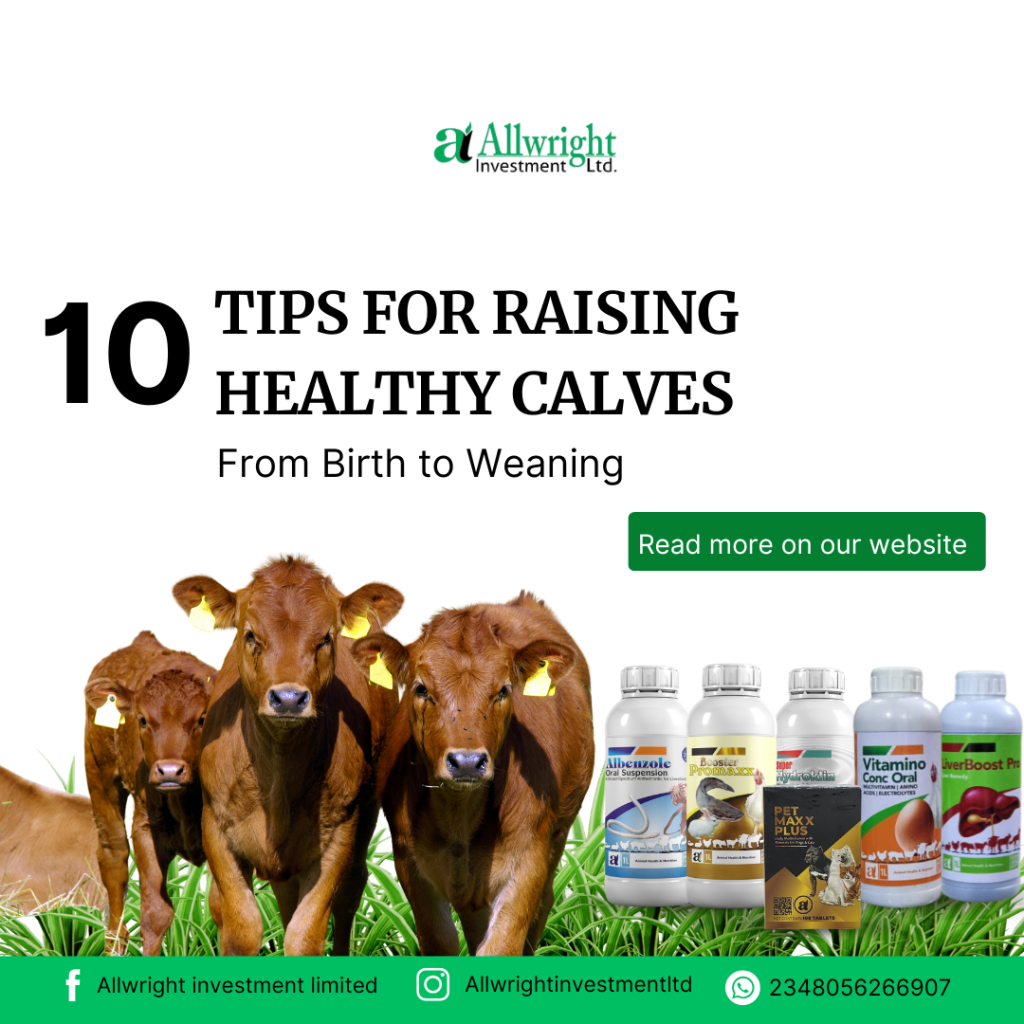
Top 10 Tips for Raising Healthy Calves: From Birth to Weaning
Raising healthy calves is one of the most rewarding yet challenging aspects of livestock farming. Whether you’re managing a dairy or beef operation, the early stages of a calf’s life are critical for its long-term health, growth, and productivity. From ensuring proper nutrition to preventing diseases, there are many factors to consider when caring for young calves.
In this blog post, we’ll explore 10 essential tips to help you raise strong, healthy calves from birth to weaning. Whether you’re a seasoned farmer or new to calf-rearing, these practical strategies will set your calves up for success.
1. Ensure a Clean and Safe Calving Environment
A clean and stress-free calving area is the first step to ensuring calf health. Dirty or overcrowded conditions can lead to infections and diseases. Provide a dry, well-ventilated space with clean bedding to reduce the risk of illness.
2. Focus on Colostrum Management
Colostrum is the first milk produced by the mother cow and is packed with essential antibodies and nutrients. Calves should receive colostrum within the first 2-4 hours of life to boost their immune system. Aim for at least 10% of the calf’s body weight in colostrum within the first 24 hours.
3. Monitor for Early Signs of Illness
Calves are vulnerable to diseases like scours (diarrhea) and pneumonia. Watch for symptoms such as lethargy, coughing, nasal discharge, or loose stools. Early detection and treatment with our supplements can prevent complications and improve recovery rates.
4. Provide a Balanced Milk Replacer or Whole Milk
If the mother cow is unable to nurse, choose a high-quality milk replacer or provide whole milk. Ensure the replacer is mixed correctly and fed at the right temperature. Consistency in feeding schedules is key to promoting healthy growth.
5. Introduce Solid Feed Early
Start offering calf starter grain and fresh water within the first week of life. This encourages rumen development and prepares calves for weaning. Choose a high-quality starter feed with the right balance of protein, energy, and minerals.
6. Keep Hydration a Priority
Dehydration is a common issue in calves, especially during bouts of scours. Provide clean, fresh water at all times, and consider electrolyte solutions for sick calves to replenish lost fluids and minerals.
7. Practice Good Hygiene
Diseases can spread quickly among calves, so maintaining cleanliness is crucial. Regularly clean and disinfect feeding equipment, pens, and water buckets. Wash your hands and boots before handling calves to prevent cross-contamination.
8. Implement a Vaccination Program
Work with your veterinarian to develop a vaccination schedule tailored to your herd’s needs. Vaccines for diseases like rotavirus, coronavirus, and clostridial infections can significantly reduce the risk of illness.
9. Gradual Weaning Process
Weaning can be stressful for calves, so take a gradual approach. Reduce milk intake slowly while increasing solid feed consumption. This helps calves transition smoothly and minimizes weight loss or stress-related illnesses.
10. Monitor Growth and Development
Regularly weigh and assess your calves to ensure they’re meeting growth targets. Keep records of weight gain, feed intake, and health issues to identify any problems early and adjust your management practices accordingly.
Raising healthy calves requires a combination of proper nutrition, hygiene, and proactive management. By following these tips, you can set your calves up for a strong start in life, ensuring they grow into productive and resilient adults.
Remember, every calf is unique, and staying observant and adaptable is key to success. If you have any questions or additional tips for raising healthy calves, share them in the comments below! Let’s work together to build thriving herds and sustainable farming practices.
What challenges have you faced when raising calves, and how did you overcome them? Let’s start a conversation and learn from each other’s experiences!

Leave a comment
You must be logged in to post a comment.